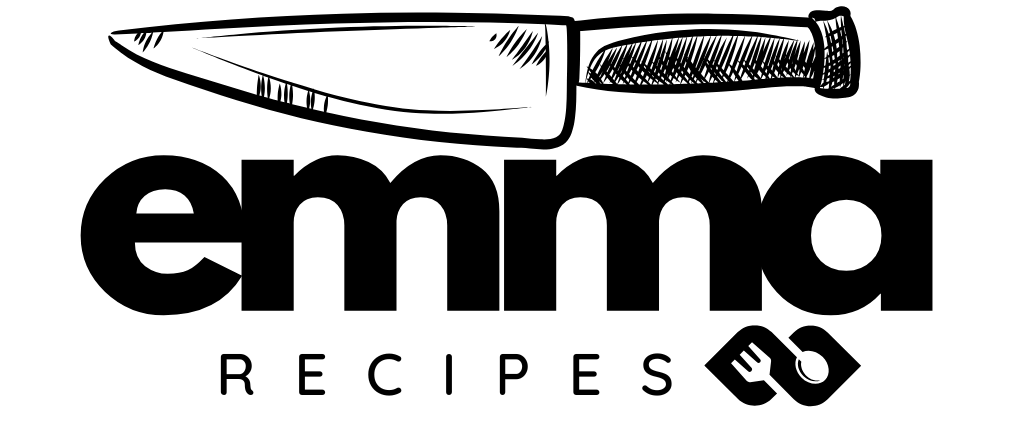At 3 months, babies need the right baby nutrition for their fast growth. As a parent, knowing about infant feeding is key for your baby’s health. A balanced diet is vital for their growth, and it’s good to think about baby nutrition and infant feeding early.
Exploring infant feeding is important. We’ll look into baby nutrition and share tips for a healthy start for your baby.
Introduction to Baby Nutrition
Knowing your baby’s nutritional needs is crucial for their growth. By focusing on infant feeding and baby nutrition, you can help your baby grow strong and healthy.
Key Takeaways
- Proper baby nutrition is essential for growth and development
- Infant feeding strategies should be informed by expert recommendations
- A well-balanced diet supports overall health and development
- Understanding your baby’s nutritional needs is vital for their health
- Infant feeding and baby nutrition are critical components of your baby’s care
- Staying informed about baby nutrition and infant feeding is crucial for parents
Understanding Your 3 Month Old’s Nutritional Needs
At 3 months old, babies need a diet full of nutrients for their fast growth. Healthy baby meals are key for their health. It’s important to know what they need. Milk, from breast or formula, is a big part of their diet.
A balanced diet for a 3-month-old includes 3 month old baby food like breast milk or formula. These foods give them the nutrients they need to grow. The American Academy of Pediatrics says babies should eat when they want, every 2-3 hours.
Here are some key points to consider for your 3-month-old’s nutrition:
- Feed your baby on demand, with feedings spaced about 2-3 hours apart
- Provide a mix of breast milk and formula, or breast milk only, depending on your preference and circumstances
- Aim for 6-8 feedings per day, with each feeding lasting around 10-20 minutes
The Importance of Milk-Based Nutrition
Milk is vital for a 3-month-old’s growth. It gives them proteins, fats, and carbs for good health.
Daily Feeding Requirements
Knowing your baby’s daily feeding needs is crucial. This includes how often and how long they eat, and what they drink.
Optimal Feeding Schedule
A good feeding schedule for a 3-month-old includes lots of feedings. It should mix breast milk and formula or just breast milk. Always talk to your pediatrician to find the best schedule for your baby.
| Feeding Type | Frequency | Duration |
|---|---|---|
| Breast Milk | 6-8 times per day | 10-20 minutes |
| Formula | 6-8 times per day | 10-20 minutes |
Why Traditional Breakfast Foods Aren’t Suitable Yet
Parents often wonder what foods are good for their 3-month-old babies. At this age, babies are just starting to eat solid foods. Their diets should mainly be breast milk or formula.
Traditional breakfast foods like cereals, eggs, and toast are not good for 3-month-old babies. Their digestive systems can’t handle these foods yet.
The American Academy of Pediatrics says babies at this age should only eat single-ingredient purees. Their digestive systems are still growing. Introducing solid foods too early can cause problems.
For example, babies can’t digest the complex carbs in cereals. This makes breakfast for babies a challenge.
- Start with single-ingredient purees to reduce the risk of allergic reactions
- Introduce new foods one at a time to monitor for any adverse reactions
- Avoid giving your baby solid foods before they are developmentally ready
By following these guidelines and waiting for the right time, you can ensure a healthy start for your baby. Remember, every baby is different. Always talk to your pediatrician before adding new foods, especially for breakfast for babies.
Breakfast Ideas for 3 Month Old Babies: What You Need to Know
The first few months are key for baby nutrition. At 3 months, babies mostly eat breast milk or formula. Knowing how to feed them right is important for their growth.
For moms who breastfeed, there are helpful options. You can store breast milk for later or use a breast pump. This makes it easier to feed your baby when you’re not there.
Feeding Options
- Breast milk: rich in antibodies and nutrients, breast milk is the ideal food for babies
- Formula: a nutritious alternative to breast milk, available in various types and brands
Choosing the right formula is key for formula-fed babies. There are many formulas out there, each with its own benefits. Some are better for sensitive stomachs, while others have extra nutrients.
Feeding Techniques
Using the right feeding techniques is crucial. This includes picking the best feeding position and burping your baby after meals. This helps prevent gas and keeps them comfortable.
| Feeding Position | Description |
|---|---|
| Football Hold | Holding the baby across your lap, with their head resting on your forearm |
| Cradle Hold | Holding the baby in a cradling position, with their head resting on your chest |
By following these tips and considering your baby’s needs, you can give them a great start. Always talk to your pediatrician if you have any feeding or nutrition concerns.
Signs of Hunger in Your 3 Month Old
It’s important to know when a 3 month old baby is hungry. They show signs like rooting reflex, sucking on hands, and fussing. These cues help parents feed them on time, giving them the 3 month old baby food they need to grow.
Here are some common signs of hunger in 3 month old babies:
- Rooting reflex: When a baby’s cheek or lips are stroked, they will turn their head towards the stimulus, indicating they are ready to feed.
- Sucking on hands: Babies often suck on their hands when they are hungry, as it helps to self-soothe and prepare for feeding.
- Fussing: A hungry baby may become fussy or irritable, especially if they are not fed promptly.
Parents need to recognize these signs and feed their baby the right 3 month old baby food at the right time. This helps create a healthy feeding routine and supports their baby’s growth.

Creating a Morning Feeding Routine
Setting up a morning feeding routine is key for a baby’s comfort and for parents too. It makes things predictable and helps everyone feel secure. A good routine includes healthy baby meals like breast milk or formula, and fun activities that bring you closer.
To start a morning feeding routine, here are some tips:
- Feed at the same time every day to help your baby’s stomach get used to it.
- Make feeding time calm by keeping it quiet, comfortable, and safe for your baby.
- Do things like burping, cuddling, and talking after feeding to strengthen your bond.
By using these tips, you can make a morning routine that meets your baby’s needs. It also helps you bond with your baby. A good morning routine can introduce healthy baby meals and breakfast for babies that are good for their health and growth.
| Morning Feeding Routine Tips | Benefits |
|---|---|
| Establish consistent timing | Regulates digestive system, promotes healthy eating habits |
| Create a calm environment | Promotes emotional bonding, supports emotional development |
| Engage in post-feeding activities | Promotes emotional bonding, supports emotional development |
Common Feeding Challenges at 3 Months
Feeding a 3-month-old baby can be tough. Issues like reflux, gas, and refusal to eat are common. These problems can be tough for parents, but many can be solved with patience and the right help.
Every baby is unique, and what works for one might not work for another. Understanding this is key to baby nutrition.
Some common feeding challenges include:
- Reflux: a condition where the baby spits up food
- Gas: which can cause discomfort and fussiness
- Feeding refusal: when the baby refuses to feed
These issues can be tackled by adjusting the infant feeding schedule, burping the baby often, and using the right feeding position.

By knowing these common challenges and taking steps to solve them, parents can ensure their baby gets the best infant feeding and baby nutrition. It’s also important to talk to a pediatrician for advice on feeding challenges and healthy growth.
| Feeding Challenge | Solution |
|---|---|
| Reflux | Adjust feeding schedule, burp regularly |
| Gas | Use the right feeding position, burp regularly |
| Feeding Refusal | Check for signs of hunger, adjust feeding schedule |
Preparing for Future Food Introduction
As your baby grows, it’s time to start thinking about solid foods. This big change can be both thrilling and scary for parents. Knowing when your baby is ready for 3 month old baby food and healthy baby meals is key.
Babies usually show interest in food and can control their head and neck around 4-6 months. But every baby is different. Look for signs that your baby is ready, like:
- Showing interest in food, such as watching you eat or reaching for your food
- Having good head and neck control, allowing them to sit up and support their own head
- Being able to move food from a spoon to their mouth
Start with single-ingredient foods when introducing solids. This helps spot any allergies or sensitivities. Healthy options include pureed fruits and veggies, like sweet potatoes and avocados.
Every baby is unique, so always check with your pediatrician before starting solids. They can give advice tailored to your baby’s needs and growth.
| Age | Developmental Milestone | Food Introduction |
|---|---|---|
| 4-6 months | Shows interest in food, good head and neck control | Introduce single-ingredient foods, such as pureed fruits and vegetables |
| 6-8 months | Able to move food from spoon to mouth | Introduce more complex foods, such as meats and whole grains |
Expert Recommendations on Infant Feeding
Parents often wonder about breakfast for babies. Luckily, experts offer advice on feeding infants. Pediatricians, the World Health Organization (WHO), and the American Academy of Pediatrics (AAP) share insights on baby nutrition.
Pediatrician Guidelines
Pediatricians suggest breastfeeding alone for the first six months. Then, introduce other foods. This helps with baby nutrition and prevents health problems.
WHO and AAP Recommendations
The WHO and AAP stress the benefits of breastfeeding. They recommend:
- Exclusive breastfeeding for the first six months
- Starting complementary foods at six months
- Waiting until four months to introduce solid foods
Following these guidelines helps babies get a healthy start. It lays a strong foundation for growth and development.
| Organization | Recommendation |
|---|---|
| WHO | Exclusive breastfeeding for the first six months |
| AAP | Introduction of complementary foods at six months |
Monitoring Growth and Development
As a parent, it’s key to watch your baby grow and develop. Regular visits to the pediatrician are important. They help track your baby’s progress and spot any delays.
During these visits, the pediatrician will look at your baby’s infant feeding habits. They will also guide you on introducing healthy baby meals to support their growth.
To keep track of your baby’s growth, you can:
- Use a growth chart to monitor weight, length, and head size
- Record your baby’s feeding schedule and patterns
- Watch for developmental milestones like rolling, sitting, and crawling
A balanced diet with healthy baby meals is crucial for your baby’s growth. A pediatrician can offer personalized advice on infant feeding and when to start solid foods. By monitoring your baby’s growth, you ensure they get the nutrients they need for health.
Being proactive in your baby’s health helps spot issues early. Always talk to your pediatrician if you have concerns about your baby’s growth or development.
| Age | Developmental Milestone | Feeding Recommendation |
|---|---|---|
| 3 months | Rolling, smiling | Breast milk or formula |
| 6 months | Sitting, crawling | Introduction to solid foods |
| 9 months | Standing, walking | Variety of solid foods and fruits |
Conclusion: Supporting Your Baby’s Healthy Start
Starting your 3-month-old baby on the right path to health is key. It’s all about the right breakfast ideas and meeting their nutrition needs. Breast milk or formula is essential, along with watching for hunger cues and introducing solids when they’re ready.
Stay in tune with your baby’s eating habits and create a routine that’s calm and positive. As your child grows, keep working with your pediatrician to support their growth and development. This care will help your 3-month-old have a strong start that will benefit them for years.
FAQ
What is the importance of milk-based nutrition for a 3-month-old baby?
Milk is key for a 3-month-old baby’s nutrition. It can be from breast milk or formula. Babies need to eat often to grow and develop fast.
How often should a 3-month-old baby be fed?
A 3-month-old baby should eat every 2-3 hours. Their small stomachs need food often to get enough nutrients.
Why are traditional breakfast foods not suitable for a 3-month-old baby?
Foods like cereals, eggs, and toast are not good for 3-month-old babies. Their digestive system is still growing. They should mainly have breast milk or formula, with some single-ingredient purees later.
What are some breast milk and formula feeding options for a 3-month-old baby?
Breast milk is best for 3-month-old babies. It gives them important nutrients and helps fight off infections. For formula, there are iron-fortified options that meet their nutritional needs.
How can I recognize signs of hunger in my 3-month-old baby?
Hunger signs include rooting, sucking hands, fussing, and crying. Knowing these helps parents feed their babies on time.
How can I establish a morning feeding routine for my 3-month-old baby?
Start with a regular time and a calm place. After feeding, do things like burping and cuddling. This makes the morning routine predictable and comforting.
What are some common feeding challenges I may face with my 3-month-old baby?
Issues like reflux, gas, and refusing to eat are common. Knowing how to handle these can make feeding easier.
When should I expect to introduce solid foods to my 3-month-old baby?
Solid foods usually start around 6 months. But, always check with your pediatrician first. They know when your baby is ready.
What are the expert recommendations on infant feeding for a 3-month-old baby?
The WHO and AAP suggest breastfeeding for the first 6 months. Then, start adding solid foods slowly.
How can I monitor my 3-month-old baby’s growth and development?
See your pediatrician regularly and watch for developmental milestones. Pay attention to any signs of delays. Keeping up with your baby’s health is very important.

